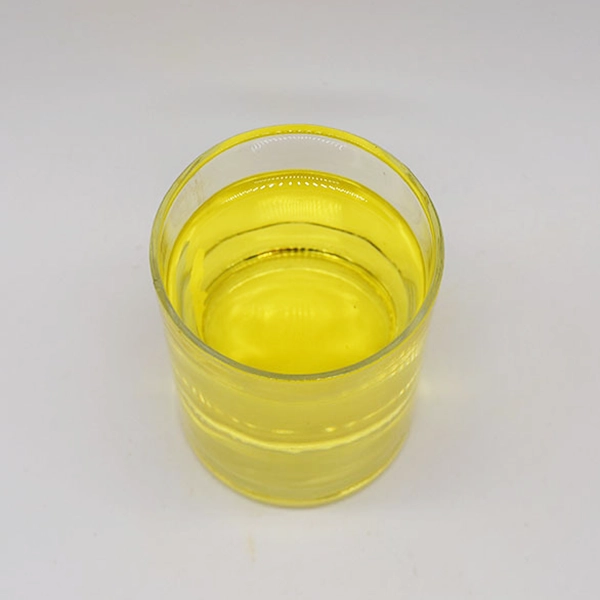+86-15212299029
- All
- Product Name
- Product Keyword
- Product Model
- Product Summary
- Product Description
- Multi Field Search
Views: 220 Author: tcchems Publish Time: 2025-08-11 Origin: Site











Content Menu
● Matching Vitamin E Oil to Your Skin Type
>> Dry Skin
>> Mature Skin
● How to Use Vitamin E Oil Safely and Effectively
>> Patch Test Before Full Application
>> Combine with Carrier Oils or Moisturizers
>> Avoid Overuse on Acne-Prone Skin
>> Use at Night for Best Results
● Choosing Vitamin E Oil Products: What to Look For
● Frequently Asked Questions (FAQs)
Vitamin E oil is a versatile skincare ingredient known for its antioxidant, moisturizing, and anti-aging properties. However, not all vitamin E oils are suited for every skin type. Choosing the right vitamin E oil depends largely on your skin's characteristics, issues, and sensitivity levels to maximize benefits and minimize adverse reactions.

Vitamin E is a fat-soluble antioxidant that protects skin cells from damage caused by free radicals. It supports skin health by moisturizing, reducing inflammation, aiding in wound healing, and slowing signs of aging such as wrinkles and fine lines. Vitamin E oil typically comes in two forms: oil-soluble (natural vitamin E like tocopherol) and water-soluble derivatives, each with different uses and benefits in skincare formulations.
- Oil-soluble Vitamin E (Tocopherol): This is the natural form found in many oils and skincare products. It is excellent for deep nourishment, preventing skin aging, and improving elasticity.
- Water-soluble Vitamin E: Often formulated for easier blending in water-based skincare products, this type absorbs more quickly and is suitable for sensitive or oily skin types that prefer lighter textures.
Dry skin benefits most from natural oil-soluble vitamin E, which deeply moisturizes and repairs skin. Vitamin E oil can soothe dry, flaky, or rough patches by reinforcing the skin's natural barrier and locking in moisture. Using it mixed with carrier oils like jojoba or argan oil can provide enhanced hydration without irritation.
For oily or acne-prone skin, pure vitamin E oil (tocopherol) may sometimes feel too heavy or comedogenic. Choosing a lighter, water-soluble vitamin E derivative or formulations combined with non-comedogenic oils is advisable. These options provide antioxidant protection and healing benefits without clogging pores or exacerbating oiliness. Patch testing is recommended to ensure no breakouts occur.
Sensitive skin requires gentle, non-irritating products. Water-soluble vitamin E oil is often preferable as it is less greasy and absorbs quickly. Products formulated with vitamin E alongside soothing ingredients such as aloe vera or chamomile can help calm inflammation, redness, and eczema symptoms.
Aging skin greatly benefits from vitamin E's anti-aging properties. Oil-soluble vitamin E strengthens skin elasticity, reduces wrinkle depth, and supports collagen production. Combining vitamin E oil with vitamins A and C can heighten photo-protective effects and skin rejuvenation. Rich creams or serums containing concentrated vitamin E are ideal for mature skin areas needing targeted treatment.
Always perform a patch test on a small skin area before widespread use. This helps identify any allergic reactions or sensitivity early.
Pure vitamin E oil is potent and can feel sticky or thick when applied alone. Mixing it with a carrier oil (like almond or grape seed) or adding a few drops to your moisturizer can improve application ease and absorption.
Using vitamin E oil sparingly on acne-prone skin is crucial, as excess oil may worsen breakouts. Applying it only on affected or dry spots can provide benefits without adverse effects.
Vitamin E oil can sometimes increase photosensitivity, so it is often best applied at night as part of your evening skincare routine.
- Purity and Concentration: Look for natural tocopherol oil with high purity for maximum benefits.
- Formulation: Water-soluble forms are better for oily or sensitive skin, while oil-soluble forms suit dry and mature skin.
- Added Ingredients: Check for complementary antioxidants like vitamin C or soothing botanicals like chamomile.
- Packaging: Vitamin E degrades with light exposure, so opt for dark glass bottles with airtight pumps.
- pH and Compatibility: Vitamin E oil's optimal pH compatibility with other skincare ingredients (usually between 5-7) ensures no irritation.
1. Can vitamin E oil cause acne?
Vitamin E oil can clog pores if used in excess or as a pure oil on oily or acne-prone skin. Using water-soluble vitamin E or formulations designed for acne-prone skin reduces this risk.
2. Is vitamin E oil safe for sensitive skin?
Yes, but water-soluble vitamin E derivatives are generally better for sensitive skin types due to their lighter texture and quicker absorption.
3. Can vitamin E oil help with scars and hyperpigmentation?
Yes, vitamin E oil has properties that may reduce scar visibility and lighten dark spots by promoting skin cell regeneration and improving microcirculation.
4. How often should I apply vitamin E oil?
For most skin types, applying vitamin E oil 2-3 times a week is sufficient. Dry and mature skin types may benefit from daily use at night.
5. Can vitamin E oil be mixed with other skincare products?
Absolutely. Vitamin E oil blends well with most oils, moisturizers, and serums. It is often combined with vitamins A and C for enhanced antioxidant effects.

[1] https://nikura.com/blogs/discover/vitamin-e-oil-benefits-for-skin-and-how-to-use-it
[2] https://www.sohu.com/a/244324302_100014426
[3] https://www.prevention.com/beauty/skin-care/a63214523/vitamin-e-oil-for-skin/
[4] https://www.dsm.com/personal-care/zh-cn/products/vitamins/vitamin-e.html
[5] https://www.medicalnewstoday.com/articles/318168
[6] https://www.youtube.com/watch?v=pJ_SQqi_yW8
[7] https://lpi.oregonstate.edu/mic/health-disease/skin-health/vitamin-E
[8] https://post.smzdm.com/p/a5xl0353/
[9] https://www.hollandandbarrett.com/the-health-hub/natural-beauty/skincare/how-to-use-vitamin-e-oil-on-your-face/
[10] https://m.baidu.com/bh/m/detail/ar_10385268515699025140
Hot Tags: China, Global, OEM, private label, manufacturers, factory, suppliers, manufacturing company




The Difference Between Phloretin And Phloridzin: What You Need To Know?
How To Choose The Right Phloretin Supplier for Your Business?
What Is Phloretin? Understanding Its Role in Cosmetics And Pharmaceuticals
Phloretin Vs Other Antioxidants: Which One Is Best for Your Skin?
What’s The Difference Between Hyaluronic Acid Serum And Cream?
What’s The Difference Between Sodium Hyaluronate And Hyaluronic Acid?
What’s The Difference Between High And Low Molecular Weight Hyaluronic Acid?
The Top Hyaluronic Acid Raw Material Suppliers: A Global Perspective